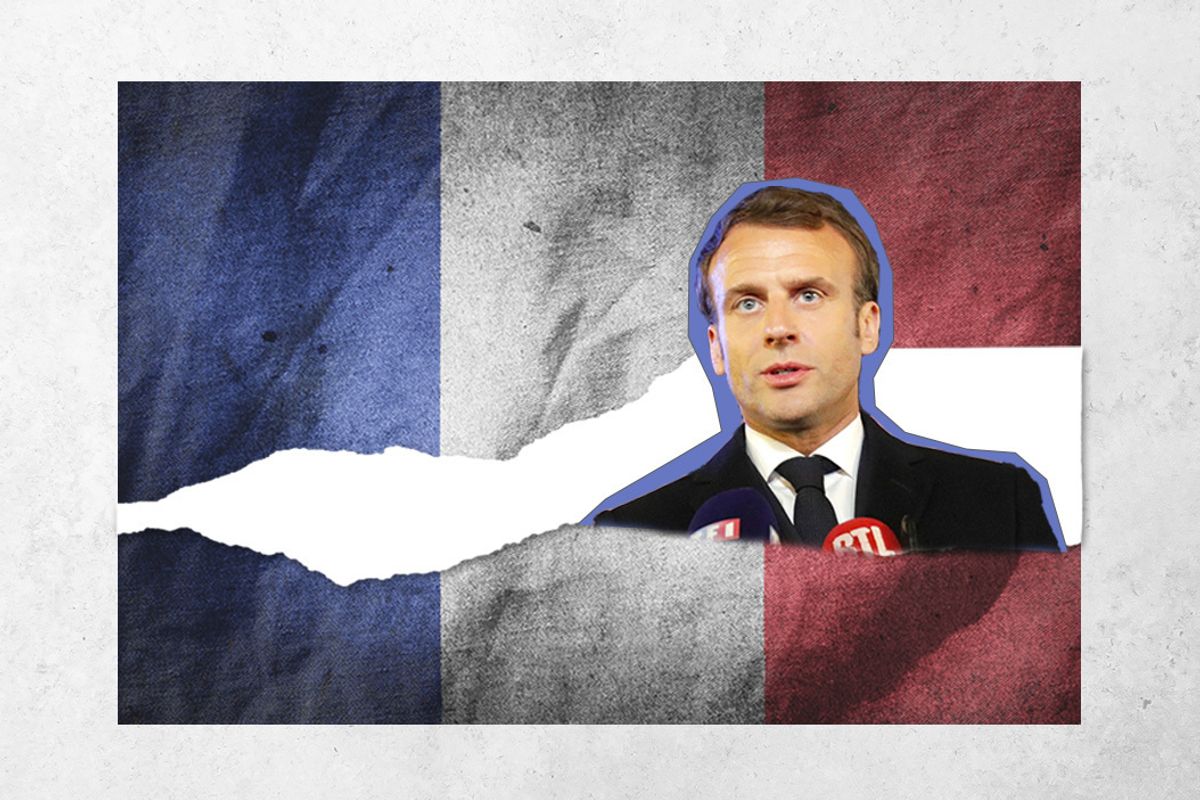Back in June, we considered the "rough road ahead" for French President Emmanuel Macron after his political party, La République En Marche (LREM), took a thrashing in local elections. Since then, things have only gotten tougher for the man once hailed as France's centrist savior.
Here's a snapshot of what's on Macron's plate at home, and what comes next.
Terrorism: France is grappling with a resurgence of terrorist attacks by Islamic extremists. The gruesome beheading of a high school teacher on the outskirts of Paris last month, followed by a deadly rampage at a church in the southern city of Nice several days later, sent shockwaves through a country that has lost more of its people to terror attacks in recent years than any other Western country.
In the aftermath, Macron drew fire from Muslim groups as well as international media and analysts who accused him of demonizing law-abiding Muslims in his attempt to condemn the attackers. Some observers have also lambasted the French government for not doing more to help integrate France's large Muslim population, prompting Macron to hit back, accusing the English-language media of "legitimizing this violence." (The New York Times' Ben Smith pressed Macron about this claim in a new interview.)
While Macron says he is simply emphasizing the value of "secularism" in French society — shrugging off accusations that he harbors anti-Muslim sentiments — he also likely has political motivations: Macron beat far-right firebrand Marine Le Pen in elections in 2017, but Le Pen did still win over 10 million French voters with her anti-immigration and anti-Islam agenda. That campaign propelled concerns about France's Muslim population into mainstream French politics, and Macron may now be calculating that using hardline anti-Islam rhetoric will resonate with some French voters.
Implications of COVID. France is one of several European states currently grappling with a major second wave of the pandemic. But Macron has seemed uniquely vulnerable politically: his approval numbers have dipped much more than those of leaders in many other hard-hit countries. The French leader currently has a dismal net approval rating of -28 percent, the lowest among a group of 14 world leaders from major economies.
Part of Macron's problem is that his strengths have become weaknesses. Macron — a stalwart of France's financial elite who had never stood for elected office before winning the top job in 2017 — came to power by exploiting disillusionment with France's traditionally dominant center-left and center-right parties. As anti-establishment furore gripped France, Macron took advantage of the vacuum in French politics by filling that abandoned center.
The trouble for Macron is that he has never successfully created, nor endeared himself to a reliable voting base whose support he can rely on.
In part that's because Macron has played the role of ideological chameleon — he's been described as "president of the rich" because of his pro-business agenda, while also trying to play ball with France's powerful unions. Yet, he's failed to fully captivate either the center right or the center left. This has caused a hemorrhaging of support within his own party, leading to mass defections this year, which caused LREM to lose its parliamentary majority.
The rest of the rough road. Macron faces reelection in two years. He is currently neck-and-neck in the polls with Le Pen, his likely opponent. The fact that Le Pen is deeply polarizing helps Macron in an electoral system that often leads to runoffs (the divisive Le Pen would be very unlikely to crack 50 percent in a head to head with anyone).
But that still leaves Macron with the basic problem of how to govern successfully as a centrist outsider when centrism is losing appeal. It's also hard to play the role of outsider after nearly four years on the job. At the moment, the French people don't seem to be buying it.






